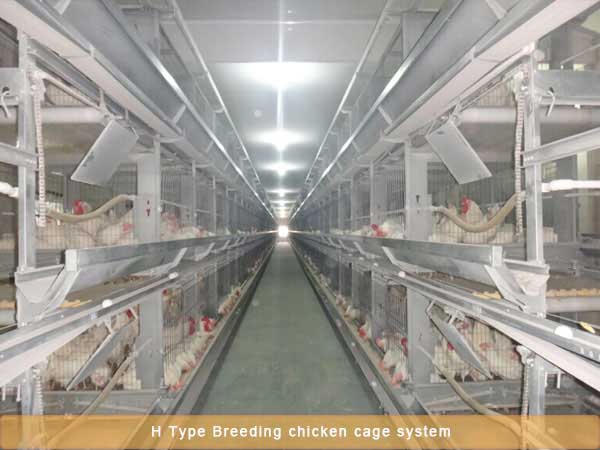What is a Poultry Cage?
- font size decrease font size increase font size
A poultry cage is a structure designed to house poultry, primarily chickens, for egg production, meat production, or baby chicks. Poultry cages provide a controlled environment for the birds, optimizing their health, productivity, and management.
Types of Poultry Cages
There are various types of poultry cages, each tailored to specific purposes and stages of poultry production.
1. Battery Cages (Laying Cages):
Battery cages are multi-tiered cages used for housing laying hens. They are designed to maximize egg production and minimize disease transmission. Each hen is housed in an individual cage, preventing direct contact with other birds.

2. Broiler Cages (Meat Chicken Cages):
Broiler cages are designed for raising meat chickens from day-old chicks to market weight. They are typically larger than battery cages and provide more space for the birds to move around.

3. Pullet Cages (Baby Chick Cages):
Pullet cages are used to house young female chickens (pullets) from the time they are weaned until they reach laying age. They provide a protected environment and allow for monitoring of growth and development.

Breeder cages are used to house breeding stock for the production of hatching eggs. They are designed to provide a comfortable and stimulating environment for the birds to encourage mating and egg production.

Advantages of Poultry Cages
Improved Production: Cages optimize bird density, leading to higher egg or meat production.
Disease Control: Cages isolate birds, reducing the spread of infectious diseases.
Labor Savings: Automated feeding, watering, and waste removal systems minimize labor requirements.
Environmental Control: Cages allow for precise temperature, humidity, and ventilation control, ensuring optimal conditions for bird health and productivity.
Easier Management: Cages facilitate regular monitoring, vaccination, and treatment of individual birds.
Considerations for Poultry Cage Management
Responsible poultry cage management is crucial to ensure bird welfare.
Important factors include:
Providing adequate space and enrichment to meet the birds' behavioral needs.
Maintaining a clean and hygienic environment to prevent disease outbreaks.
Implementing a proper nutrition program to support bird health and productivity.
Regular monitoring and veterinary care to address any health issues promptly.
In conclusion, poultry cages are essential tools in modern poultry production, providing a controlled and efficient environment for raising chickens for egg and meat production. By selecting the appropriate cage type and implementing responsible management practices, farmers can optimize bird health, productivity, and overall profitability.

